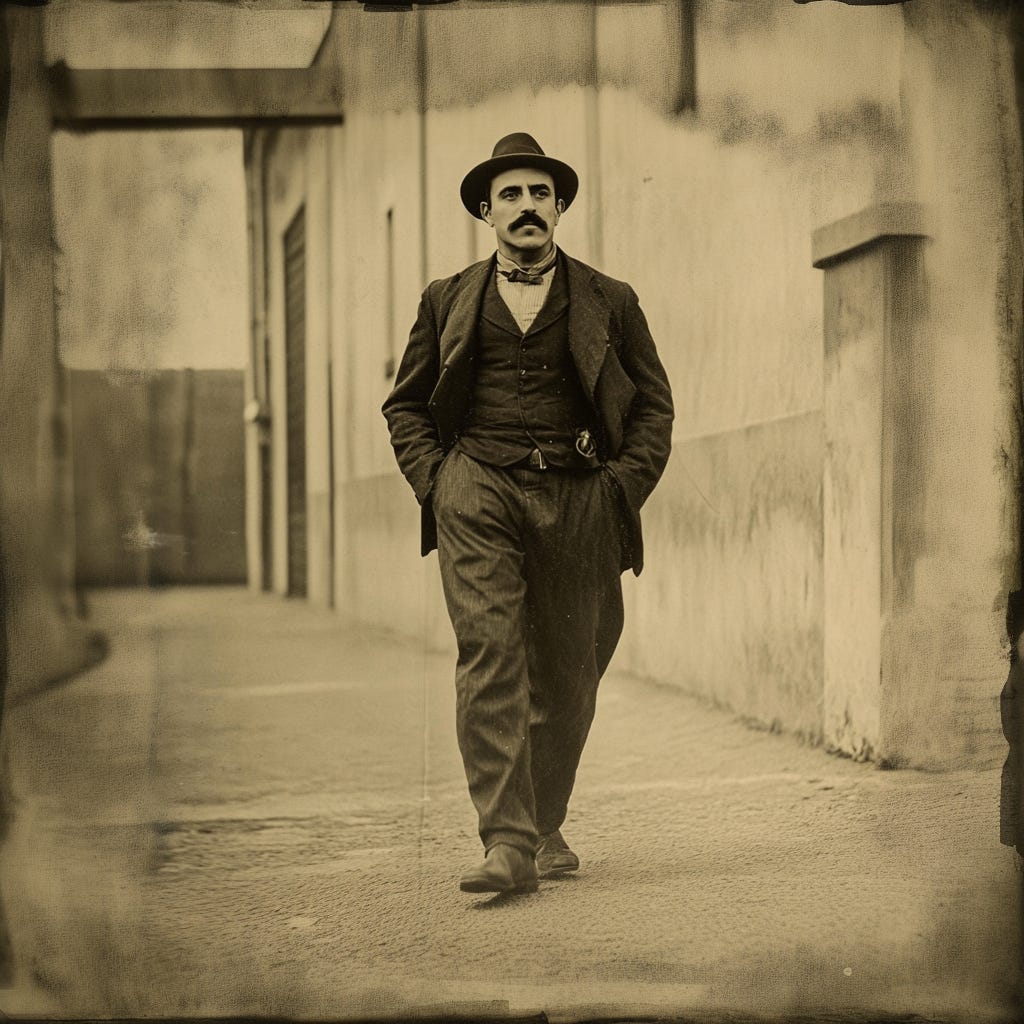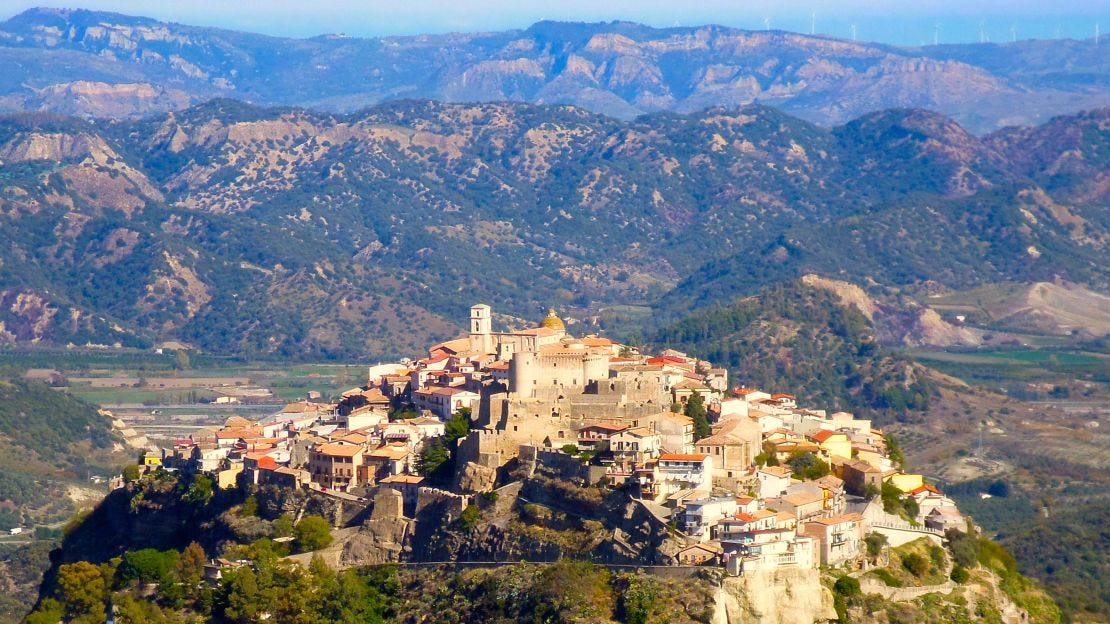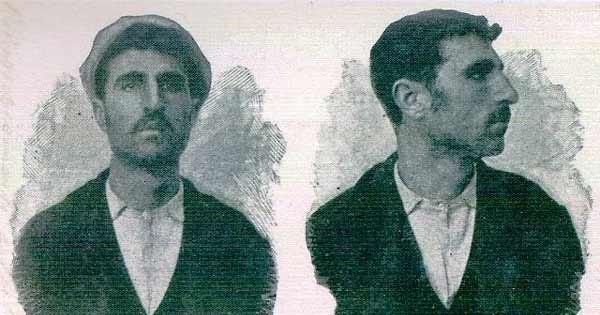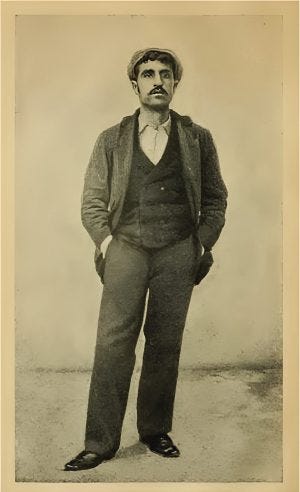"The King of Aspromonte": The Remarkable Tale of Giuseppe Musolino's Bloody Vendetta
In 1898, Calabrian peasant Giuseppe Musolino was convicted and sentenced to 21 years in prison in what he believed was a sham trial. Later, he would escape prison and exact brutal vengeance
Background
In the late 19th century, Calabria, located in southern Italy, was one of the country's poorest regions. The economy was primarily agricultural, dominated by large estates known as "latifundia," owned by a few wealthy families. Most of the population were peasants who worked these lands under feudal like conditions. The terrain was rugged, and the soil quality was often poor, making farming difficult.
Socially, Calabria was marked by significant inequalities. The wealthy landowners held substantial power, while the majority of the population lived in poverty. Education was scarce, and literacy rates were low, with about 70% of the population in the Mezzogiorno (southern Italy) being illiterate during this period.
This lack of opportunities forced many to emigrate in search of a better life. Between 1901 and 1914, a significant number of Calabrians left their homeland, with the peak year being 1905, when 62,690 individuals emigrated.
In this region, law enforcement was often weak or absent, and local disputes could escalate without proper mediation. This environment of poverty and social inequality contributed to the rise of brigandage, as some individuals took to banditry, either out of desperation or as a form of resistance against the authorities.
Within this context, individuals like Giuseppe Musolino emerged, whose actions would later resonate with many who felt marginalized and oppressed.
Humble Beginnings
Giuseppe Musolino was born on September 24, 1876, in Santo Stefano in Aspromonte, a small village in the rugged mountains of Calabria, Italy. His family was of peasant origin, and like many in the region, they lived a humble life.
Giuseppe worked alongside his father as a woodcutter, spending his days in the dense forests of the Aspromonte mountains. The work was physically taxing, involving long hours of chopping and hauling timber, but it was honest labor, and it sustained their family.
The Aspromonte region, known for its wild and untamed landscapes, was home to many small communities that relied on the land for their livelihood. Life there was challenging, with the mountainous terrain making travel and communication difficult.
The region's isolation meant that news and developments from the rest of Italy were slow to reach them, and the unification of Italy in 1861 had brought little change to the daily lives of Calabrian peasants.
Despite these challenges, Giuseppe's early years were shaped by the close-knit community of Santo Stefano.
Feud with the Zoccali’s
In late October 1897, Giuseppe Musolino found himself entangled in a violent dispute with brothers Vincenzo and Stefano Zoccali, members of a local criminal group known as the picciotteria, a criminal gang that would later evolve into the region’s fearsome mafia, known as the Ndrangheta.
The confrontation, which took place in his father's tavern in Santo Stefano, was reportedly over a delivery of hazelnuts.
Some accounts also suggest that Musolino and Vincenzo were rivals for the affection of a local woman. The confrontation escalated into a physical altercation, spilling into the street where others joined. Knives were drawn until one side produced guns and fired shots in the air to send the participants scattering for cover.
During the chaos, Musolino sustained stab wounds to his hand and arm, allegedly inflicted by Vincenzo Zoccali.
Two days later, an attempt was made on Vincenzo Zoccali's life. He was shot at while he was at the stable, tending to his horses. The shooter remained hidden behind a wall, but witnesses testified that they had heard Musolino’s voice, and his cap was later found at the scene, further implicating him in the attack.
Musolino, asserting his innocence, claimed he had been falsely accused and that the evidence against him was fabricated.
A formal complaint was filed with the police, but when authorities attempted to arrest Musolino, he had already vanished. Someone had warned him that he was a wanted man, so he fled into the Calabrian mountains, evading capture for six months.







